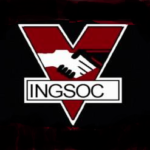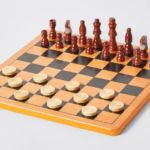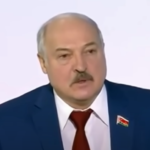Christmas reading from a guest author
I see them walking around shopping malls, laughing, carefree. I see them getting out of or into gleaming cars. I see them going along the streets and thronging the squares of my city. And I listen in. I listen in and hear them almost all and sundry speaking Russian. Beautiful, literary, radio and television Russian. I get thrilled by its sound. I recall the time when Soviet troops were stationed in my country. Soviet troops were statistically overwhelmingly composed of soldiers of Russian, Ukrainian and Belarusian nationalities, the three nationalities that speak Russian. There were quite a few of them, especially in the part of my homeland where I lived and where I still live. Back then, however, I didn’t hear Russian spoken on the streets at all. Nor did I see Soviet soldiers. Today, it is impossible to walk a hundred meters not to hear people talking in Russian, not to hear Russian spoken by… Ukrainians. Indeed, in a store you stand amazed when you hear both the customer standing in front of you and the cashier serving him communicate in Russian. You wonder if you have moved across the eastern border in your dream. Immediately, however, you come to the realization that you are still at home and ask yourself: are you sure you are still at home?
Now I am getting to know firsthand how the Germans, French, Swedes or English feel. They are at home, and yet as if not at home. But no. They probably have it worse. My country is taking in people of the same anthropological type, people who adhere to a similar creed: my country is being populated by Europeans. Of course, I realize that the aforementioned Germans, Frenchmen, Swedes and Englishmen need not feel at all bad about having relocated to a foreign country without relocating. After all, years of grooming by schools, the media and churches have done their part. I recall those young German women from 2015 with “Welcome refugees” signs and facial expressions that I won’t describe because of the not-so-nice words I would have to use. These young German, Swedish, French, English women whose minds have been completely appropriated and who do what their grandmothers would have been ashamed of, preach what their grandmothers would have condemned, believe what their grandmothers would not have thought of! Unfortunately, their grandmothers and grandfathers are leaving the stage and are – like me – deeply disgusted by what they see and hear.
I’m shopping in the big shopping mall of my city, listening and looking at the Ukrainians, looking at those so-called refugees, looking at the young men and young women, and I can’t help thinking that their countrymen are sitting in trenches, in tanks, in armored vehicles; that their countrymen are sitting in cold and unlit apartments and houses; that their countrymen have lost hope of effective medical help, that their countrymen…. And I can’t shake off the thought that their compatriots – like the sick man on his bed of pain – would like at least the presence of those here, those who shop around in brightened malls and smile and sit down at a table with coffee and cake; I can’t help thinking that their compatriots would like those here to be there with them and at least accompany them with their presence.
Someone will tell me I’m wrong. Someone will tell me that those there in the trenches and cold apartments are happy that at least some managed to break out, some managed to escape. Perhaps. In a similar situation I would, however, prefer my compatriots to be with me. I would not be comforted by the thought that, lo and behold, this man or this woman managed to escape. Rather, I would feel betrayed. I would feel left to my own devices by this man and this woman. I think there are more like-minded people, more people like me, who have neither so much cleverness, nor such acquaintances, nor such a lack of a sense of duty and solidarity with their compatriots to save themselves and not to bother with the fate of the other members of the community. I wouldn’t be heartened by the thought that many managed to escape. I know myself, so I know I would be pushed out of the train crowded with defectors or if you will refugees; I know I would not be able to arrange for fuel for my car, I would not be able to bribe an official to delete me from the conscription list. I would be helpless.
With this thought I saunter through the shopping mall, look at the people who we are told to call refugees – don’t you dare call them defectors or deserters! – and wonder about the world in which I happen to live. For several decades the word refugee has been present on the pages of dailies, weeklies and monthlies, for several decades the word refugee has not stopped resounding on radio and television. I can’t help thinking that this global movement of refugees is not a natural phenomenon; rather, behind the appearance of naturalness there is someone’s idea, an idea to resettle millions of people around the globe, an idea to make ethnic exchanges, to wipe nations off the face of the earth. A truly satanic intent. Solve et coagula: destroy (what is) and put back together or – as they customarily say nowadays – build back better (from scratch). Artistic stagings inaugurating the 2012 London Olympics or those accompanying the 2016 opening of the St. Gotthard Tunnel only confirm this conjecture.
It is obvious to me that these mass displacements are wanted. How else can we explain that phenomenon that the mighty United States spends billions of dollars arming Ukraine and is unable to control the endless stream of human masses crossing the southern US border? How else can we explain the phenomenon that one day German police forces are cracking down on some organization whose members allegedly sought a coup d’état and wanted to restore the German empire (quite a ridiculous idea), while Britain’s police forces failed to do what they ought to have done when gangs of Pakistanis enslaved and raped hundreds of teenage British girls in Rotherham and other towns for years? Where there is a will, that is a way. Obviously certain things are wanted. The accompanying double standards have become a political and social norm in the West. In all spheres of life. How to explain such extraordinary vigilance of the Western media to any manifestation of – what they call – nationalism or Nazism while they turn a blind eye or even support groups with a nationalist and Nazi political profile in Ukraine?
What is the so-called public opinion on all this? It is difficult to make judgments about true public opinion. After all, what passes for public opinion is nothing more than the opinion of the leading mass media, that is, the small group of people who dispose of these media. Period. Here is the German Chancellor giving a speech against the backdrop of a sign: Deutschland – Einwanderungsland. Do all Germans really wish for an ever-growing mix of anthropological types, religions and cultures in their country? Here is the American president repeating again and again that diversity is America’s strength and that it’s a good thing that whites have already become a minority in the US since 2017. Does he really believe this? Does he have people of various anthropological types, faiths and cultures in his family? How about the other Western countries? Alas, everywhere the same hypocritical ideology and everywhere this supposedly authentic public opinion that wants diversity and immigration. Somehow I don’t want to believe it. And the reason I don’t believe all of this is because I’m from a country where, just a month before he completely lost power, the then leader was still achieving a 98 percent result in parliamentary elections….
Similarly, I don’t believe in the man-made climate change with which our consciousness has been assaulted for more than a quarter of a century. Why I don’t believe in it? Precisely because my consciousness is being assaulted with this nonsense ruthlessly, day in, day out; precisely because this man-made climate change gibberish is being thrust down my throat; precisely because I am being shown hysterical teenagers who are seriously convinced that in a few years they won’t have air to breathe. I am thoroughly sick of it! Continue reading →

















